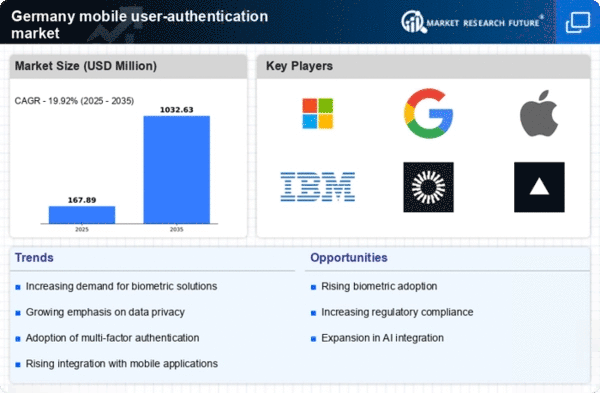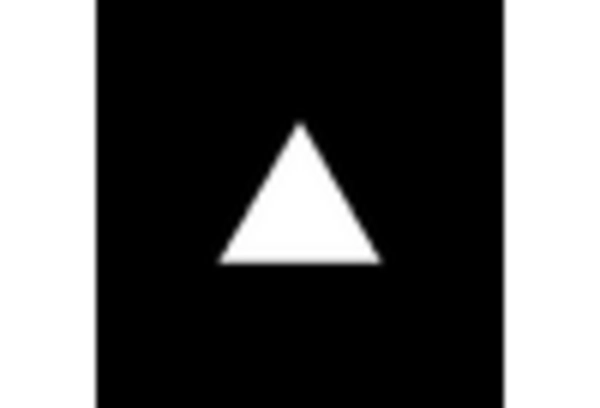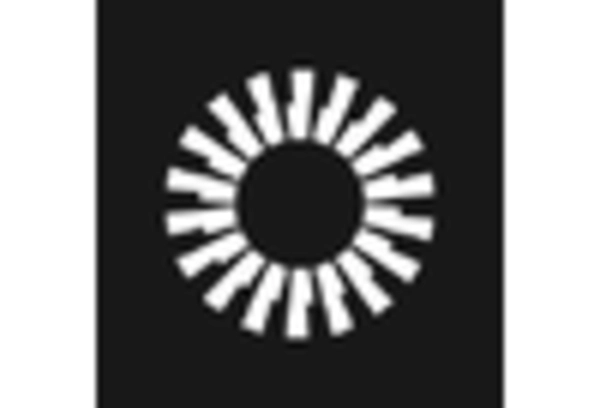Growing Mobile Device Usage
The proliferation of mobile devices in Germany is a key driver for the mobile user-authentication market. With over 80% of the population owning smartphones, the demand for secure mobile applications and services is surging. This trend is further fueled by the increasing reliance on mobile banking, e-commerce, and digital services, which necessitate secure authentication methods. In 2025, it is anticipated that mobile transactions in Germany will exceed €200 billion, highlighting the critical need for effective user-authentication solutions. As businesses seek to enhance user experience while ensuring security, the mobile user-authentication market is poised for substantial growth, driven by the widespread adoption of mobile technology.
Increasing Cybersecurity Threats
the mobile user-authentication market is seeing increased demand due to more frequent and sophisticated cyber threats in Germany.. As organizations face a growing number of data breaches and identity theft incidents, the need for robust authentication solutions becomes paramount. In 2025, it is estimated that cybercrime could cost the German economy over €100 billion annually, prompting businesses to invest in advanced mobile user-authentication technologies. This trend indicates a shift towards more secure methods, as companies seek to protect sensitive information and maintain customer trust. Consequently, the mobile user-authentication market is expected to grow as organizations focus on security measures to reduce risks from cyber threats..
Consumer Awareness of Data Privacy
The mobile user-authentication market is benefiting from a growing awareness among consumers regarding data privacy and security. In Germany, individuals are becoming increasingly concerned about how their personal information is handled, leading to a demand for more secure authentication methods. Surveys indicate that over 70% of German consumers prioritize data protection when using mobile applications. This heightened awareness is prompting businesses to adopt advanced mobile user-authentication solutions to meet consumer expectations and build trust. As a result, the market is likely to see a surge in demand for innovative authentication technologies that address these privacy concerns, reflecting a shift towards more responsible data management practices.
Regulatory Compliance Requirements
the mobile user-authentication market is heavily influenced by strict regulatory frameworks in Germany, including the GDPR and the BDSG.. These regulations mandate that organizations implement adequate security measures to protect personal data, thereby driving the adoption of mobile user-authentication solutions. As companies strive to comply with these legal requirements, they are increasingly turning to advanced authentication technologies. In 2025, it is projected that compliance-related investments in mobile user-authentication could reach €2 billion, reflecting the critical role of regulatory compliance in shaping market dynamics. This trend underscores the necessity for businesses to adopt effective authentication strategies to avoid hefty fines and reputational damage.
Technological Advancements in Authentication
the mobile user-authentication market is driven by rapid advancements in authentication technologies.. Innovations such as artificial intelligence (AI) and machine learning (ML) are enhancing the effectiveness of authentication solutions, making them more secure and user-friendly. In Germany, companies are increasingly leveraging these technologies to develop sophisticated mobile user-authentication systems that can adapt to evolving security threats. By 2025, it is expected that investments in AI-driven authentication technologies will surpass €1 billion, indicating a strong trend towards integrating cutting-edge technology in the mobile user-authentication market. This evolution not only improves security but also enhances user experience, making it a critical driver for market growth.
















